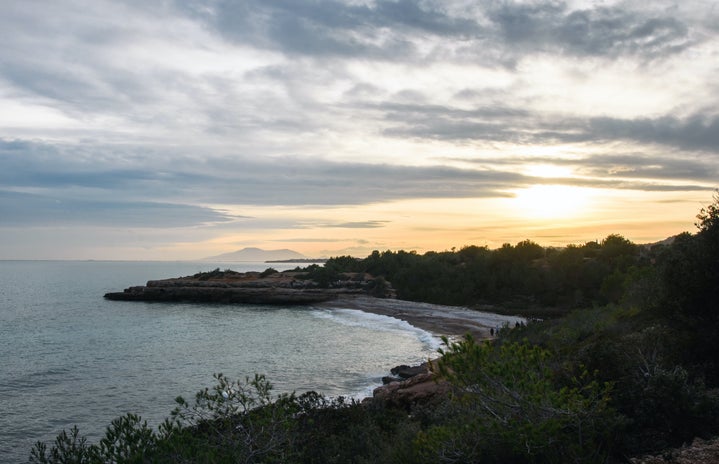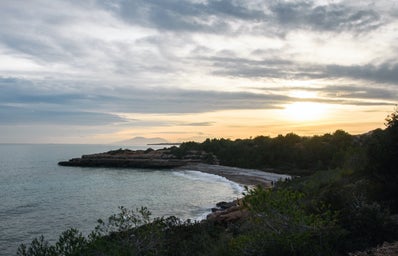Venezuela is a medium-sized Latin American country known for its beautiful mountains, forests, culture, bountiful resources and now, political corruption (but that’s a story for another time). I was born in Venezuela and spent my entire childhood there. My identity grew around the values and traditions that surrounded me for these critical years of my life. In 2010, however, my family decided to immigrate to the United States. Needless to say, apart from the language barrier, it was a huge culture shock. Since some of these disparities are very interesting and entertaining, I thought I would share some of them. Here are seven differences between Venezuela and the United States!
(Disclaimer: these are based on my own personal experiences, and I by no means intend to generalize this to everything and everyone in either Venezuela or the United States. With that being said I’m sure enough people would agree with me on this)
- Food Variety
-
One of the first things I became aware of after moving here was the vast array of product choices offered at the supermarket. This may sound silly to someone who grew up with the option between twenty types of frozen pizzas, six types of Cinnamon Toast Crunch and ten types of milks made with varying concentrations of fat and various types of nuts. I was used to having maybe a fourth of those options, and often there wouldn’t even be an option for something because of scarcity problems. Therefore, my local supermarket in Virginia was an amusement park and a haven upon my arrival. I remember specifically being baffled, and borderline overwhelmed, by the extensive yogurt and cereal aisles. I was also so surprised to find that samples were a common occurrence in most supermarkets! As the years have gone by I’ve gotten used to this privilege of choice, but I try to not forget where I came from.
- Bathroom Mannerisms
-
The plumbing system of the United States is admittedly superior to that of Venezuela. In Venezuela you cannot throw toilet paper in the toilet. You will clog it, and you will have to go find a plunger. Throwing away used toilet paper was second nature to me until I moved to the United States. Since we still used trash cans in my household, I didn’t realize there was a difference in this mannerism until I went to a friend’s house and got questioned for throwing away my toilet paper in the empty (that should’ve been a sign) trash can. I was shook! It has taken a while to change the behavior I was taught my whole life, but now throwing the toilet paper in the toilet is second nature to me. This is true for everywhere except my own house, where I still use the trash can even though I’m sure our plumbing could handle it.
- Drinking From the Faucet
-
On a related plumbing note, in Venezuela it isn’t safe to drink water from the faucet. I understand that not every place in the United States has this privilege, but for the most part everywhere I’ve traveled I’ve been able to drink from the faucet without the fear of contracting cholera, norovirus or some other disease from contaminated water. To this day, I’m still a bit skeptical that the water I am drinking from the faucets is as pure or harmless as people claim, but I do it anyway. Lastly, it’s important for me to mention that as time has passed and technology has improved, people in Venezuela are able to install a purification system to their water faucet for easy drinking access. However, this is most definitely not something that comes pre-installed with the purchase of your apartment.
- Personal Space
-
Alright, this was probably one of the biggest cultural shocks I encountered when moving to the United States. The concept of personal space is practically nonexistent in Venezuela. When you greet someone, even if it’s the first time, you kiss each other on the cheek and you’ve immediately known each other forever. To express affection people bear-hug like there is no tomorrow. Even in public it sometimes feels like your personal space bubble is burst or ignored most of the time. In the United States, people shake hands, hugs are often less dramatic and if you sit next to someone when there are open seats nearby it’s often weird. This lack of personal space could even extend to your personal life. In Venezuela, people seem to know details about you they probably shouldn’t, and so it’s not a big deal to try to keep your life super private.
- Teachers
-
It was extremely strange for me to have to call my elementary school teachers “Mrs.” and “Mr.” As outrageous as it may seem for someone who grew up in the American school system, in Venezuela we called our teachers by their first names. This doesn’t mean we respected them any less, that was just how it was done. Additionally, going back to the lack of personal space point, teachers were also your friends and guardians in school on a different level. They established a connection on another level with us and were very personable. They hugged us during class, talked to us outside of class, were friends with our parents and added us back on Facebook. When we moved and my mom became a teacher in an American middle school she would make jokes like, “God forbid I tap a kid on the shoulder because I will get sued.” I always thought that was very funny. It’s just two drastically different cultures, I suppose!
- Punctuality…or Lack thereof
-
Venezuelans make jokes that “if the party starts at 4 o’clock, we get there 7 o’clock.” This may be a slight exaggeration, but the truth is truly not that far from the joke. Punctuality is not something that was instilled in me very well. I was used to showing up to events and reunions too fashionably late. While this might have been acceptable there, in the United States I’ve gotten in trouble several times with my friends for not being on time to functions. It has gotten to the point where my friends tell me to be ready a half hour early to account for my unpunctuality, and I’m still sometimes late. I recognize this is a weakness I have and something I have been trying to overcome for a decade. It’s not going so well.
- Parties End at Dawn
-
This last point is something that I barely got to experience myself since I moved when I was 10 years old. Still, even family parties we had for birthdays, weddings and New Year’s Eve lasted well through 5 or 6 AM. I’m not kidding when I say I’ve left houses after an event and seen the sunrise. I know for a fact that now as young adults this tradition still upholds with my old friends that still live in Venezuela. Here in the United States, it’s a pretty late night if you get home at 3 AM—unless you’re partying with Latinos, in which case that is a common occurrence.
All in all, each country has taught me invaluable lessons and introduced me to meaningful traditions. While I’ll never forget my roots, I’ve definitely established some very meaningful connections to the United States and in some situations have adopted the American way of life. I think it’s an extremely intriguing and fun exercise to compare countries culturally and socially and to think about what in its history accounts for these differences.
Follow HCND on Twitter, like us on Facebook, Pin with us and show our Instagram some love!


